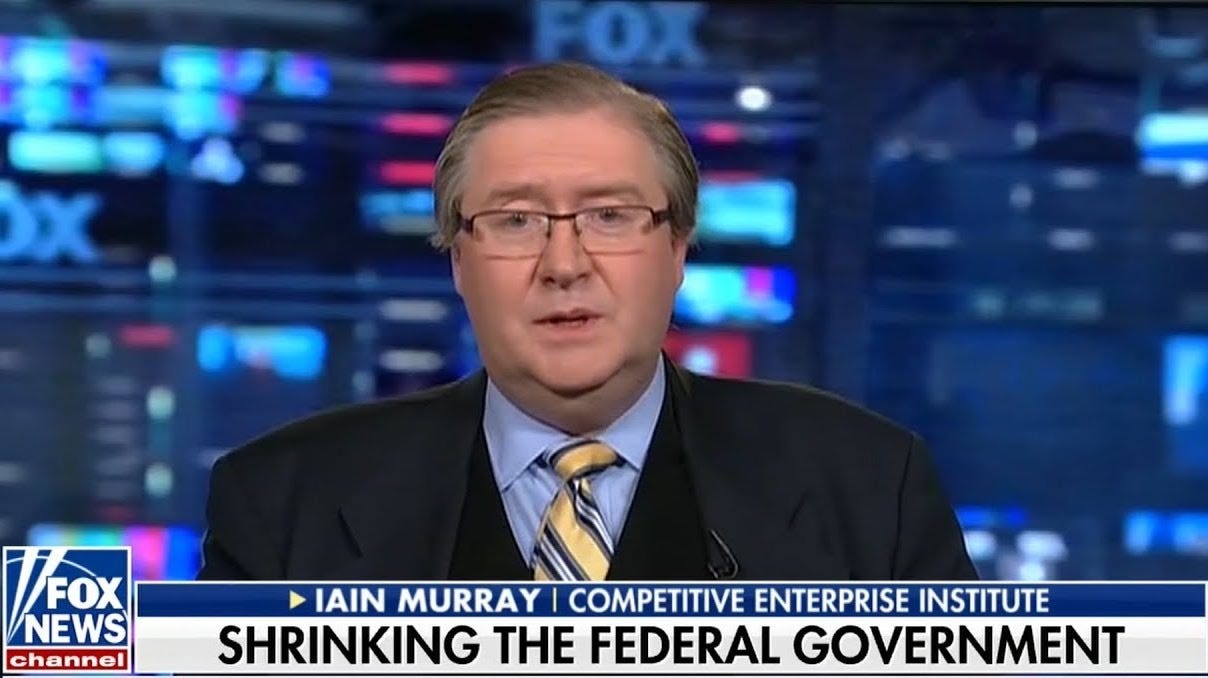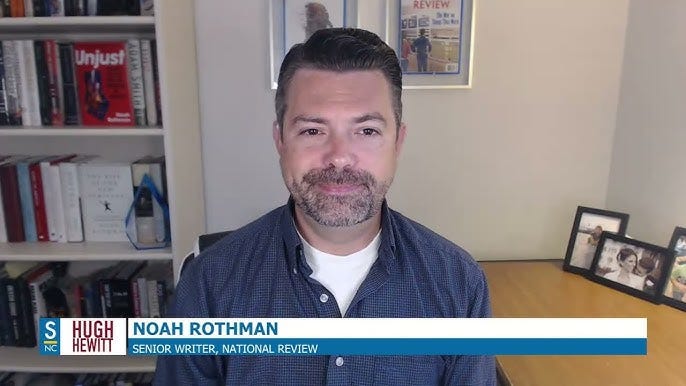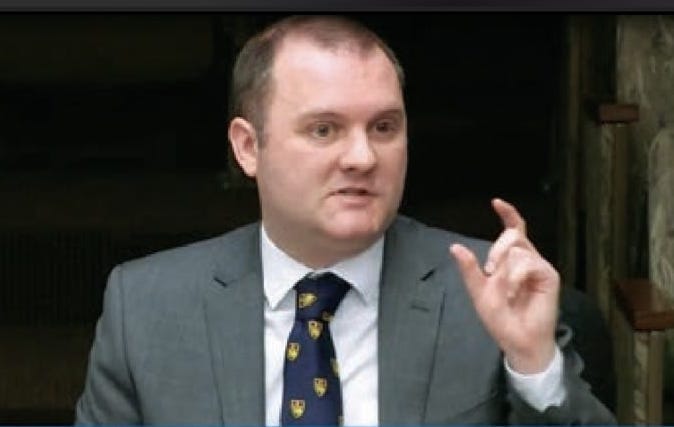Self destruct
FreeCons urge Trump, Capitol Hill to reverse course on tariffs
This is our moment — unfortunately.
For years, Freedom Conservatives warned politicians and activists not to embrace the neo-protectionism of the nationalist-populist Right. The best way to make American companies more competitive is to reduce taxes and regulation, not increase them (through tariffs and import barriers, respectively).
According to exit polls, the rising cost of living was the top election issue of 2024. Voters recoiled from the rampant inflation of the Biden years. They chose a new president and Congress to pursue a new course.
Much of the Trump administration’s policy agenda — such as deregulating energy, easing restrictions on homebuilding, and reining in wasteful federal expenditures — will ease upward pressure on consumer prices. Unfortunately, the administration’s latest round of import taxes will do precisely the opposite.
“Americans can only prosper in an economy in which they can afford the basics of everyday life: food, shelter, health care, and energy,” we wrote in the Freedom Conservatism Statement of Principles.
“We commit to reducing the cost of living through competitive markets, greater individual choice, and free trade with free people, while upholding the rule of law, freedom of contract, and freedom of association.”
Should the United States constrain trade in strategic resources and technologies with enemies such as China? Certainly. But declaring trade wars against other free societies is reckless and counterproductive.
Today we feature prominent FreeCons who’ve pushed back on the administration’s false claims and urged Congress to reclaim its constitutional power to levy taxes.
Geopolitical disaster
Iain Murray vice president for strategy and senior fellow at the Competitive Enterprise Institute and one of the organizers of the Freedom Conservatism project.
The Trump administration’s latest round of tariffs will obviously be harmful to consumers, Murray argued in a recent post, but broader consequences are coming.
“They will also cause problems for American producers, and have already led to factory closures and the loss of manufacturing jobs,” he wrote. “Global stock markets are reacting badly, and the dollar is falling. All of this was entirely predictable, and it is likely to continue. A recession is not out of the question.”
Murray also described the policy shift as a geopolitical disaster, as it “represents the end of the humanitarian idea of ‘trade, not aid’ as the way for the U.S. to encourage economic development in the developing world.
“That simple principle, combined with concomitant market liberalization, has been responsible for the greatest reduction in poverty in human history.”
Legal and constitutional issues also abound. Trump’s tariffs “unilaterally abrogate free trade agreements,” Murray wrote, some of which are formal treaties ratified by the Senate.
“This is simply one of the biggest peacetime policy mistakes made by an administration in living memory.”
Isolated America
Noah Rothman is a senior editor at National Review and author of The Rise of the New Puritans: Fighting Back against Progressives’ War on Fun and Unjust: Social Justice and the Unmaking of America.
The Trump tariff scheme exemplifies “the folly of central planners,” Rothman argued in a recent National Review piece, and should prompt an immediate revocation of the tariff power lawmakers unwisely delegated to the executive branch.
“That is what Congress must — not should, not ought to, but must — do if it is to prevent the second-order consequences that will follow from this spectacularly ill-conceived act of economic self-harm,” he wrote.
“What will flow from this program isn’t just domestic economic pain, reduced consumer purchasing power, reduced growth, augmenting the power of the state to reward favored constituencies and punish the unfashionable, and inviting the imminent prospect of recession.
“These tariffs will induce our partners abroad in Southeast Asia, who had invested mightily in their manufacturing capacity to compete with China, to bandwagon with the largest consumer market in their region. They will compel Europe, the largest purchaser of U.S. goods, to do the same.”
The tariffs “have humiliated America’s would-be allies, some of whom were guilty only of being naïve enough to believe the administration’s rhetoric, and they’ve empowered America’s critics and skeptics.”
“In sum, the tariff schedule Trump imagines will not just make America poorer; it will make America more isolated and less safe.”
Voter backlash
A former deputy chief of staff and senior advisor to former President George W. Bush, Karl Rove is now a Wall Street Journal columnist, Fox News contributor, and FreeCon signatory.
In his latest WSJ column, Rove argued that recent Democratic successes in special elections constituted a blinking caution light for Republicans — and the president’s trade policies could well turn yellow to red.
“Americans are skittish about tariffs: 56% oppose them, with 72% believing they’ll raise prices in the short run compared to 5% who think they’ll reduce prices,” he wrote. “Over the long term, only 29% say they’ll lower prices.
“Voters understand tariffs are taxes they’ll pay on anything from abroad, and they’ll hold Republicans responsible. They’ll certainly remember Mr. Trump saying he ‘couldn’t care less’ if U.S. automakers raised prices because they had to pay more for imported parts. They’ll blame Republicans for the price pressures and supply chain problems they hear about at work.
“If trading partners retaliate with tariffs on U.S. agriculture products and take their business elsewhere, farm country — Trump country — won’t be happy.”
Appeasing cranks
John Phelan is an economist at the Minnesota-based Center of the American Experiment and a FreeCon signatory.
In a recent column for the Minneapolis Star-Tribune, Phelan argued that Trump administration policies on energy and environmental policy are likely to “boost the supply side of the American economy” and help bring prices down.
“But tariffs will offset possibly all of that” — because the Trump plan constitutes the largest peacetime tax increase in American history outside of World War II, with the burden falling disproportionately on the middle- and lower-income earners.
“This is not what Americans squeezed by three years of inflation voted for in November,” Phelan concluded.
“Voters will punish an administration elected on an economic mandate if it acts so contrary to that simply to appease a handful of economic cranks.”
In the mix
• In the Washington Examiner, FreeCon signatory Joel Griffith noted that by signaling an openness to cutting side deals with countries and individuals, the administration is certainly not draining the Washington swamp.
Lobbyists “love” this sort of “tariff exclusion process,” argued Griffith, a senior fellow at Advancing American Freedom.
Trump’s tariff policies have “generated a massive financial windfall for K Street lobbyists while hardworking American families pick up the tab.”
• In The Dispatch, FreeCon signatories Charles Hilu and Peter Gattuso covered two key aspects of the trade dispute: the questionable tariff formula used by the administration and efforts on Capitol Hill to reassert legislative authority over tax policy.
“The new tariff rates the White House published are not reciprocal,” Gattuso reported. “Reciprocal tariffs would charge the same tariff rate that foreign countries place on American exports.”
Trump’s tariffs were based instead on whether the U.S. has a deficit or surplus in goods (excluding services) with each country.
In Hilu’s piece, he reported that Sens. Chuck Grassley and Maria Cantwell have filed a bill requiring the president to give 48 hours notice to Congress ahead of any imposition of tariffs, and those tariffs would expire after 60 days unless Congress approves them.
Some Republicans senators expressed a measure of support for clawing back control over trade — but only in the abstract.
“I think it’s time to revisit that, but I don’t want to do it in a politically charged environment,” Sen. Mike Rounds of South Dakota told The Dispatch. “But I absolutely agree this was set up by the Founding Fathers to be Congress’ role, and I think we’re way past the point of what the Founding Fathers ever wanted to have happen.”
Asked about the bill from Grassley and Cantwell, he said he had not read it but that he would “take a hard look at it.”




